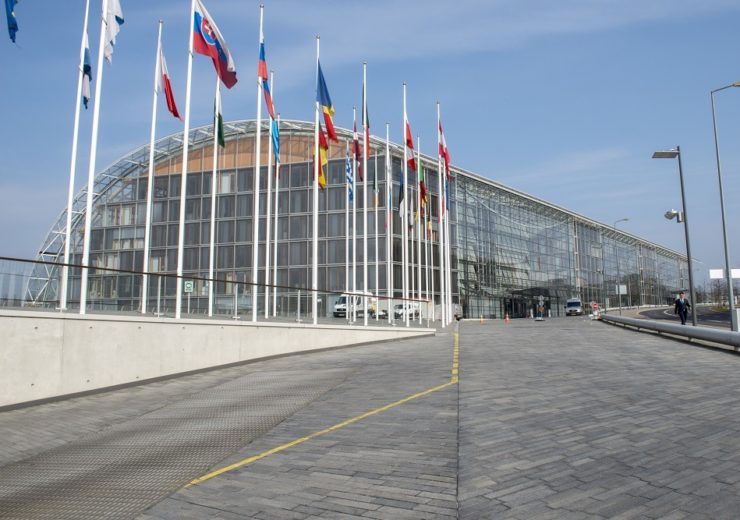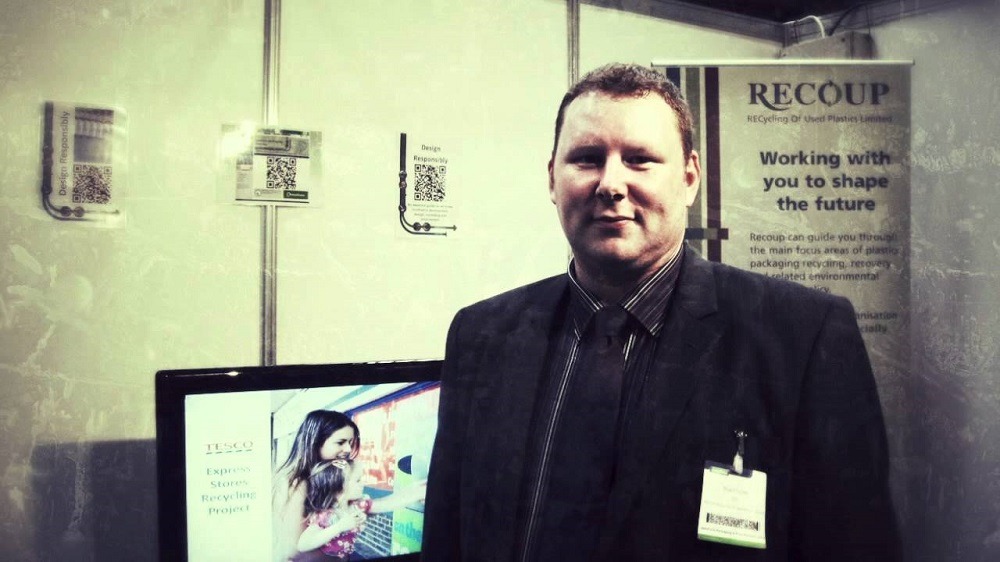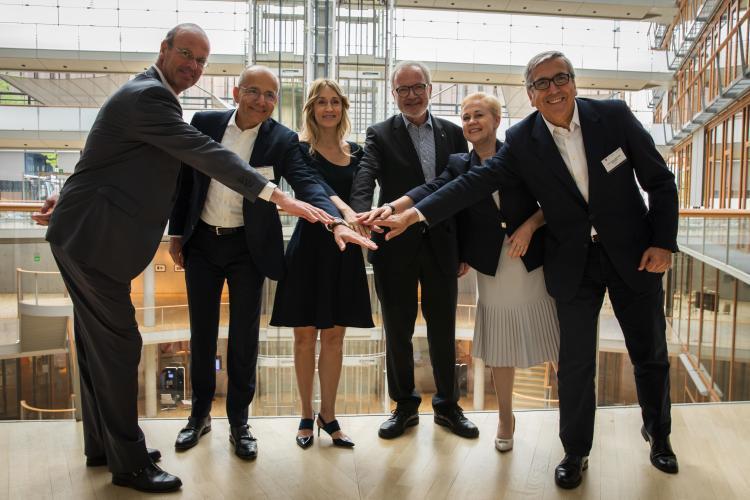Recycling charity Recoup's CEO Stuart Foster reacts to news from the European Investment Bank that it will invest €10bn in the circular economy

European Investment Bank's headquarter (Credit: Steintec, Flickr)
The long-term financial benefits of the circular economy are huge, says recycling charity boss Stuart Foster.
The Recoup CEO has backed a commitment by the European Investment Bank (EIB) to invest at least €10bn ($11bn) over the next five years to “accelerate the transition to a sustainable and circular economy” across Europe.
A new Joint Initiative on Circular Economy (JICE), set up by the Luxembourg-based bank last week, aims to prevent and eliminate waste, increase resource efficiency and foster innovation by promoting circularity in all sectors of the EU economy.
Alongside backing from the EIB, JICE’s financing will also be supported by five European national promotional banks – entities which are given a mandate by a member state at central, regional or local level – including Germany’s KfW and France’s Caisse des Dépôts et Consignations.
Stuart Foster on circular economy’s potential

Mr Foster believes the announcement demonstrates recognition of the potential in Europe for the circular economy – a system designed to keep materials in use for as long as possible.
He said: “This scale of backing is meaningful and will help deliver on the circular economy promise, not just for the well-recognised environmental and resource benefits, but also the long-term economic and job creation benefits that come with it.
“Given plastic has the potential to be a truly circular resource and leakage into the environment must be stopped as soon as possible, it should continue to be a prioritised material within the wider circular economy system development.”
What is the European Investment Bank proposing?
JICE will provide loans, equity investment or guarantees to eligible projects, and develop innovative financing structures for public and private infrastructure for municipalities, private enterprises, and research and innovation projects.

It will focus particularly on investments in the EU member states that will help accelerate the transition to a circular economy and target all stages of the value chain and life cycle of products and services.
This will include applying “reduce and recycle” strategies to design out waste before being put on the market.
It enables the reuse, repair, repurposing, refurbishment or remanufacturing of products when in use by a consumer – and the recovery of materials and other resources.
JICE will also invest in projects seeking to facilitate circular strategies in all life cycle phases through the deployment of key computing technologies, digitalisation and services supporting circular business models and value chains.
Joint Initiative on Circular Economy will help achieve Paris Agreement goals
EIB president Dr Werner Hoyer said: “Fighting global warming and environmental crises is the most urgent challenge of our time.
“Strengthening the circular economy is one of the most powerful tools in our arsenal. It will not only help achieve the Paris Agreement targets but also bring huge benefits for the economy and society.
“With the Joint Initiative on Circular Economy, we are scaling up our ambition and joining forces with our peers to stem the tide of waste.”
KfW CEO Dr Günther Bräunig believes operating the circular economy has to be done collectively.
He said: “KfW has always been focused on sustainability – about 40% of our financing already accounts for environmental and climate protection.
“But no country can handle the huge challenges in this field on its own. That is why it’s of utmost importance to join forces with our European partners.
“The conservation of our natural resources is a pivotal task for all of us, and we have to devote more attention to this issue.
“The shift to a circular economy will play a key role here, and our joint initiative is a first step to achieve this goal.”
José Carlos Garcia de Quevedo, chairman of Spain’s Instituto de Crédito Oficial (ICO), said promotional banks have a responsibility to improve relationships between European institutions.
He added: “ICO aims to promote inclusive economic growth and to transition to more sustainable development.
“Support for alternatives such as the circular economy perfectly aligns with the sustainable development goals and with the public policies covered internationally in the 2030 agenda, including the EU Sustainable Finance Action Plan and the Spanish National Change Agenda.
“As public promotion banks, we have a clear leadership responsibility in this field and a great commitment to enhance collaboration among European institutions.”
The financial sector has a key role to play in addressing current environmental issues, says charity
Environmental charity Earthwatch Europe‘s director of programmes and partnerships Maria Pontes told NS Packaging that the financial sector has an important job when it comes to environmental issues.

She said: “Earthwatch Europe welcomes the initiative announced recently by the EIB to support circular economy projects in the EU.
“The financial sector has a key role to play in addressing the current environmental crisis by driving more ambitious agendas for business and providing the capital required for a new economy.
“Together with promoting systems change, we hope to see more engagement with business and awareness raising that is evidence-based to support and accelerate than change in an appropriate, targeted way.”
